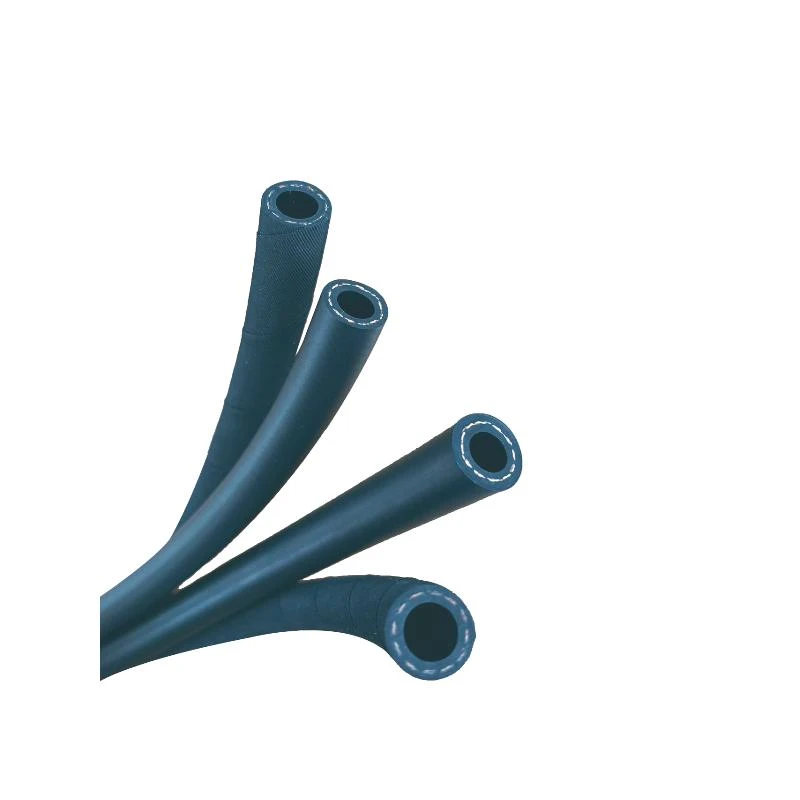Flexible Fuel Hose for Enhanced Performance and Easy Installation Options
Nov . 18, 2024 11:54 Back to list
Flexible Fuel Hose for Enhanced Performance and Easy Installation Options
Bendable Fuel Line Innovation in Fuel Delivery Systems
The automotive and aerospace industries have long been at the forefront of technological advancement, consistently developing new materials and designs to enhance performance and reliability. One of the recent developments that have captured attention is the bendable fuel line. This innovation represents a significant step forward in fuel delivery systems, addressing the challenges posed by traditional rigid fuel lines.
Understanding Bendable Fuel Lines
Bendable fuel lines are flexible tubing systems that transport fuel from the tank to the engine in vehicles and aircraft. Made from advanced materials such as thermoplastic elastomers (TPE) or flexible composites, these lines can easily navigate complex spaces and curves without compromising fuel flow. The flexibility of these fuel lines allows them to be routed through tight spaces and around obstacles, which is particularly beneficial in modern vehicle design where maximizing space is crucial.
Advantages of Bendable Fuel Lines
1. Space Efficiency One of the primary advantages of bendable fuel lines is their ability to fit into tighter spaces compared to traditional rigid lines. As automotive designs become more compact, the ability to save space is paramount. Bendable lines offer manufacturers the freedom to design lighter and more aerodynamically efficient vehicles.
2. Ease of Installation The installation process for bendable fuel lines is generally simpler and more straightforward than that for rigid fuel lines. Their flexibility allows for easier maneuvering during installation, reducing labor time and costs. This is particularly advantageous in manufacturing settings where efficiency can significantly impact production timelines.
3. Resistance to Vibration and Movement Vehicles endure a significant amount of vibration, which can lead to wear and tear on rigid fuel lines. Bendable fuel lines can absorb some of this stress due to their flexible nature, resulting in a longer lifespan and reduced risk of leaks or ruptures. This characteristic is crucial for maintaining safety and reliability in fuel delivery systems.
4. Corrosion Resistance Many bendable fuel lines are designed to resist corrosion from fuels and environmental factors. As fuels can contain various additives and contaminants, having a fuel line that can withstand these elements is essential for longevity and performance. The materials used in bendable fuel lines often have excellent chemical resistance properties, further enhancing their durability.
bendable fuel line

5. Cost-Effectiveness While upfront costs for advanced materials may be higher, the overall cost-effectiveness of bendable fuel lines becomes evident over time. Their longevity, reduced installation costs, and increased efficiency contribute to savings in the long run for manufacturers and vehicle owners alike.
Applications of Bendable Fuel Lines
Bendable fuel lines are not limited to automotive applications. They are equally valuable in aerospace, where weight savings and space optimization are critical. As aircraft designs become more intricate and compact, the need for flexible fuel delivery systems grows. Bendable fuel lines can also be utilized in recreational vehicles, marine applications, and even in lawn equipment, showcasing their versatility across various sectors.
Challenges and Future Developments
Despite their numerous advantages, the adoption of bendable fuel lines does come with challenges. Engineering standards and regulations play a significant role in determining the types of materials and designs that can be used safely. Future developments will likely focus on enhancing the properties of these materials to ensure they meet both performance and safety standards.
Moreover, as the automotive industry pivots towards electric vehicles (EVs), the role of fuel lines may evolve. However, the principles of flexibility and efficiency established by bendable fuel lines may inspire innovations in other areas of fluid delivery systems, such as coolant lines or battery fluid management systems for EVs.
Conclusion
Bendable fuel lines represent a progressive step in the evolution of fuel delivery systems, offering a blend of flexibility, durability, and cost-effectiveness. As industries continue to innovate and seek solutions to modern challenges, bendable fuel lines are likely to play an increasingly vital role in shaping the future of transportation. Their application across various sectors underscores the impact of adaptable design in improving safety, efficiency, and performance in fuel transportation. The future looks promising for this innovation, as both manufacturers and consumers reap the benefits of this advanced technology.
